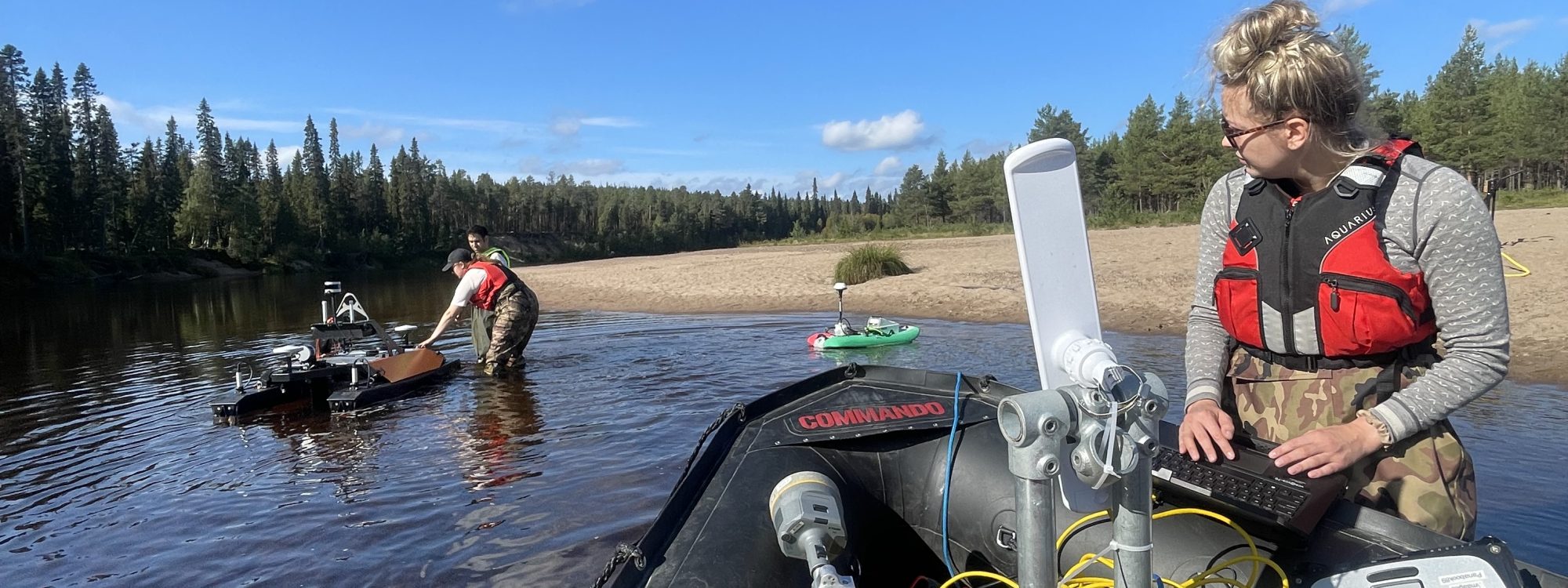Background
We are currently witnessing a major global ecological crisis challenging the living conditions on the Earth. Climate change and biodiversity losses have caused over €145 billion in economic losses in the EU over the past decade, in addition to inestimable human costs.
The crisis increasingly threatens food, water and energy security in Europe and globally, resulting in serious socio-economic challenges. Transformative change is urgently needed. Interdisciplinary research and education in Green and Digital Transition provide a key means of addressing these complex crises by catalysing change towards sustainable socio-economic growth.
UTU-GreDiT trains 25 doctoral researchers required to deliver transformative change towards sustainable societies, with skills and knowledge to operate across sectors, at regional, national and international level. In order to reach this goal, UTU-GreDiT integrates 14 research groups, the well-established cutting-edge research infrastructures and experienced supervisors of UTU to UTU-GreDiT doctoral researchers. In addition, associated partners provide national or international 4-6 months’ secondments and other training activities to doctoral researchers. Besides enhancing the doctoral researchers’ academic skills and producing new interdisciplinary knowledge, UTU-GreDiT will provide transferable skills training for doctoral researchers including scientific writing, project management, the culture of open science and entrepreneurial skills that are essential for widening their career prospects.
UTU-GreDiT research groups
- Fluvial and Coastal Environments/GEO/Group size: 34
- Prof. Petteri Alho, Dr. Elina Kasvi, Dr. Harri Tolvanen, Dr. Carlos Inca, Dr. Tua Nylen
- Fluvial and coastal processes applying computational fluid dynamics, field measurements, laser scanning, remote sensing and geospatial modelling.
- Geological resources/GEO/Group size: 20
- Prof. Antti Ojala, Assoc. Prof. Esa Heilimo
- Geological resources for the green energy transition; acquisition, analysis and interpretation of subsurface 3D data associated with battery minerals, low-enthalpy geo-energy reservoirs and nuclear waste disposal; glacial hydrology.
- Landscape Sustainability /GEO/ Group size: 8
- Prof. Nora Fagerholm, Assoc. Prof. Niina Käyhkö
- Human-nature interactions in multifunctional landscapes, resilience, and sustainable spatial planning practices utilizing participatory mapping, geospatial approaches, 3D virtual landscapes, and local knowledge.
- Digital Data Innovation Hub and UTU Tanzania Team /GEO+COMP/ Group size: 15
- Prof. Niina Käyhkö, Prof. Jussi Jauhiainen, Assoc. Prof. Nora Fagerholm, Prof. Ville Leppänen, Assoc. Prof. Tuomas Mäkilä, Prof. Jukka Heikkonen, Prof. Tomi Westerlund, Dr. Carlos Gonzales-Inca, Dr. Lauri Hooli, Dr. Salla Eilola
- Community platform for geospatial data and digital technology for global south climate and sustainability challenges. FAIR data, EO, open-source technologies, digital skills development, citizen science, machine learning & AI, climate resilience, disaster management, nature-based solutions.
- Eco-physiological responses of organisms to environmental stressors/BIO/ Group size: 31
- Prof. Katja Anttila, Dr. Marjo Helander, Dr. Tapio Eeva, Dr. Céline Arzel, Dr. Amélie Crespel, Dr. Silke Van den Wyngaert
- Effects of environmental stressors (i.e. global change and pollution) on different organisms from cells to community level, study of the eco-physiological responses of organisms to anthropogenic stressors allows the development of predictive tools for biodiversity management and conservation.
- Social-ecological systems/BIO/ Group size: 31
- Prof. Jon Brommer, Prof. Veijo Jormalainen, Prof. Toni Laaksonen, Dr. Satu Ramula, Dr. Jukka Suhonen, Dr. Timo Vuorisalo
- Interactions and adaptations of ecological and social systems, natural resources, biodiversity, and urban ecology threatened by global change with multidisciplinary approaches.
- Human evolutionary health /BIO/ Group size: 26
- Prof. Virpi Lummaa, Prof. Päivi Onkamo, Dr Milla Salonen, adj. Prof. Mirkka Lahdenperä, Dr Aida Nitsch, Dr Kerttu Majander, Dr Elina Salmela, Dr Ulla Moilanen.
- Integrates landscape ecology, human evolutionary ecology, archaeology, ancient DNA, pathogen genomics, historical demography and contemporary health; register data to examine how environmental and genetic factors drive past and present disease spread, epidemic severity and future evolution of our health and disease.
- Algorithms and Computational Intelligence/COMP/ Group size: 18
- Prof. Prof. Jukka Heikkonen, Prof. Tapio Pahikkala, Prof. Timo Knuutila
- Theory and applications of machine learning, data analytics, algorithm design, discrete optimization and differential privacy, research related to natural resource inventory and water quality evaluation, cost-effective feature selection for machine learning.
- Turku Intelligent Embedded and Robotic Systems/COMP/ Group size: 25
- Prof. Tomi Westerlund, Assoc. prof Wallace Moreira Bessa
- Multi-robot autonomous systems for harsh and unstructured environments, edge artificial intelligence for embedded and distributed intelligence.
- Maximal efficiency photo bio production/LIFE+COMP/ Group size: 5
- Prof. Mikko Tikkanen, Asst. Prof. Pauli Kallio, Prof. Jukka Heikkonen
- Photosynthesis research, IoT, and AI combining solutions for improving indoor farming technologies via optimizing the conditions for maximal light/electricity to photosynthesis efficiency, commercialize photosynthesis knowledge in the development of energy efficient photobiological production technologies.
- Biodiversity and regenerative business/BD+TSE/ Group size: 12
- Prof. Ilari Sääksjärvi, Asst. Prof. Anne Quarshie
- Interconnections of biodiversity, biodiversity loss, society, economy, leadership and business, multidisciplinary research team seeks and uses new systemic approaches to study the theme beyond the traditional nature-culture divide, strong background in both biodiversity (BD) and business research (TSE) and development of multidisciplinary biodiversity research.
- Battery Materials and Technologies/MTEK/ Group size: 14
- Prof. Pekka Peljo
- One of the largest research groups in Europe focusing on electrochemistry of flow batteries and flexible production of hydrogen, applies novel materials and technologies for stationary energy storage based on flow batteries and hydrogen production, development of measurement techniques for electrochemistry, high-throughput electrochemistry to enable faster materials development.

